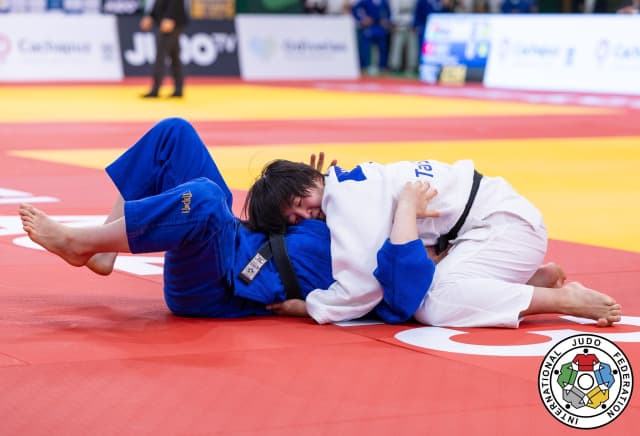“It is maybe interesting or challenging for the rest of the world that we keep such an open entry policy for the junior flagship event. Here we have Japan arriving with unseeded athletes and really making the draw very uncertain even for the highest ranked athletes. The purpose of ranking is to distribute the best athletes through the draw and reward those who work all the year competing and travelling as well as those who excel on the big day.
In Japan there is so much depth that training and competing domestically provides plenty of development and challenge and so there is little incentive for regular travel. We would really like them to travel more though, to encourage an even more unified junior world scene. All other nations learn a lot when working with the Japanese but equally the tactical element for the Japanese is stretched when they meet less orthodox judoka. It is a win, win and I would like to see more mixing prior to the world championships in the years to come.
Bright Maddaloni Nosa had a hard road to becoming number one in the world this year. He fights well and in his contest against Izawa (JPN) today, we were treated to what could easily have been a world level final. Here though, the number one didn’t even have a chance to compete in the final block. It must be said here that no matter the clues delivered by the ranking lists, every champion on every day must come through their draw. We can consider that for some a draw may be harder than for others but it is always true that to win the gold you must be the best on the day.
Still thinking about the -81 kg category, I really liked the attitude of the Czech judoka. He lost in the quarter-final but earlier in the day he was being dominated a lot and still managed to find his strength and a solution to come back through. He threw when it really counted and that was impressive. He placed 5th at the end of the day but he should be proud of his judo and he will no doubt progress further due to his experience here in Portugal.
I noticed the traditional Georgia versus Japan semi-final in this category, showing many of the elements we see at senior level; the difference in gripping strategies, in throw choices and in knowledge in ne-waza. This was similar to contests of the World Judo Tour.
Apart from the athletes, I would also say that coaches continue to have opportunities for development by working at this level, just as they do at the major cadet events. It is a chance to become more familiar with the SOR and judogi control matters. They must contend with media requests and interviews and here the door is open to learn about all aspects of international judo, knowledge that will really benefit them once they access the senior level in the future. This is no less true for coaches than it is for athletes.
I think this worlds has a good level in all areas, including organisation and refereeing. Many different departments can practise here in readiness for the highest level, while still respecting the importance of the junior experience.”




